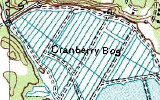Link to Course Text:

Course Content:
Course Objectives:
- Use commonly available topographic maps for such basic map reading skills as determining locations and direction, making distance and area measurements, and interpreting symbols. These applied skills will be assessed via assignments and objective exam questions.
- Presented with any map, identify the type of map it is and the nature of the information that went into its construction. This knowledge will be assessed via objective exam questions.
- Presented with any map, infer its limitations from scale, projection and symbolization characteristics. You will perform such an analysis in objective and essay exam questions.
- Interpret all of the text information given on any U.S. Geological Survey topographic map, and most of the information given on maps from other sources. This understanding will be assessed via essay and objective exam questions.
- Use large-scale topographic maps to interpret the general physiographic and settlement history of any place or area in North America. This understanding will be assessed via assignments and essay exam questions.
- Use large-scale topographic maps to illustrate certain products of physiographic or human landscape development. This ability to apply knowledge and skills will be assessed via objective exam questions.
- Given spatial data for presentation, construct a correct type of thematic map to display the information. This applied geographic skill will be assessed via assignments.
Upon completion of this course students will demonstrate the ability to:
Session Topics:
- Introduction to Course and Geography
- What are Maps?
- Map/Data Sources
- Mapping Technologies
- Maps and Computers
- Geographic Information Systems
- Data Presentation & Classification
- Topographic & Thematic Map Symbology
- General Map Design Concepts
- Basic Mapping Processes
- Locational Systems
- Map Projections
- Direction
- Map Scale
- Elevation and Contours
- Contour Interpretation
- Geographic Research & Spatial Statistics
- Natural Land Building Processes
- Erosional Landscapes
- Weather and Climate
- Vegetation Patterns
- Cultural Landscapes: Roads
- Cultural Landscapes: Development
- Population Characteristics
- Economic Activity
- Course Conclusions
-- Map Reading --
-- Map Interpretation --
-- Map Analysis --
